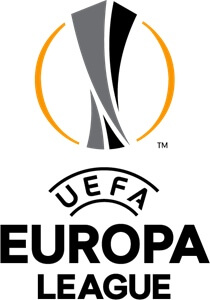
The last season brought us an absolute thriller of a final, between Manchester United and Villareal.
It all ended with Villareal winning, and thereby securing their first Europa League title in the history of the club. A big moment, to say the least.
Europa League final winner odds 2021/22
The winner odds will be updated as soon as the teams for the group stage are complete.
Bet on Europa League 2021/22 at Unibet
Terms & conditions applies
Schedule and results
The schedule for Europa League can be divided into four stages: qualification for the group stage, the group stage, playoffs and the final. The qualification for the group stage consists of three regular qualifying rounds, followed by a play-off. In each round during the qualification the teams meets twice – once at home and once away. The teams then progresses from round to round before eventually reaching playoffs. There, the losing teams in each round will have to leave the tournament.
The schedule for Europa League follows the Champions League, with the difference being that the matches are played on Thursdays. In some exceptional cases, matches can also be played on Thursdays and Wednesdays – but the matches are in general only played on Thursdays.
Europa League and its schedule starts in mid-June, when the first qualification round is played. During the summer, two more qualifying rounds will be played – as well as a final play-off to the group stage. The first round of the group stage is played in September. The schedule spans over six rounds, and the group stage ends in early December.
The playoff will take place at the beginning of February and the playoffs for the final will go on until the final is played in mid-May. The playoffs consist of a round of 16, a round of 8, quarterfinals, semifinals and, of course, the final. In each round of the playoffs, the direct turnout applies. However, the final result is set after the teams has met each other both at home and away. The final is settled through only one match, and is played on neutral grounds in a pre-decided arena.
Group stage and the groups
In Europa League, there are a total of 48 participating teams. The teams are divided into 12 groups with 4 teams in each, and the groups included in the league is therefore Group A, Group B, Group C, Group D, Group E, Group F, Group G, Group H, Group I, Group J, Group K and Group L.
During the group stage, all teams in the same group will play against each other twice – once home and once away. A total of 32 teams will advance to the play-offs, and these will inculde the top two teams in each group as well as the eight best third-placed teams. How the schedule for the playoffs will look is decided through a draw.
Table – follow your team
You’ll find the tables for the group stage of Europa League at the top of this page. In Europa League, the points is the prime thing that decides the placement of the teams. After that comes scores in mutual meetings, goal difference, scored goals and lastly the number of goals scored in the away game in mutual meetings.
If all those criteria fail to separate one team from another – this will be settled through goal difference in the group, scored goals in the group, away goals in the group, number of wins in the group and finally the number of away wins in the group. Finally, the number of yellow / red cards and finally the UEFA club coefficient that determine which teams will move on to the playoffs.
History and facts about Europa League
UEFA Europa League is a European club tournament where the teams that doesn’t qualify for the Champions League will play. The Europa League was formed in 2009, and is a merge of the two former leagues UEFA Cup and UEFA Intertoto Cup. The Europa League, however, is considered to be the continuation of the UEFA Cup, which was formed in 1971, even though both the format and name of the tournament has changed.
Since the season of 2015/16, the winner of Europa League will be given a direct place into the group stage of Champions League. For that reason, the Europa League title has grown to become very attractive.
Each European Football Association associated with UEFA gets a number of spots into the Europa League qualifier for their national leagues or cups. How many places a nation is awarded with is calculated through a coefficient that UEFA has developed, which is based on sporting success. In short, a nation can lose or get additional spots into the Europa League depending on how well the leagues performs in Europe.
The most successful teams in Europa League has been from the Premier League and Serie A. Sevilla stands out as one of the title winners, and they had three consecutive wins between 2014-2016. Along with Real Madrid, they are the only teams to defend their Europa League titles.
